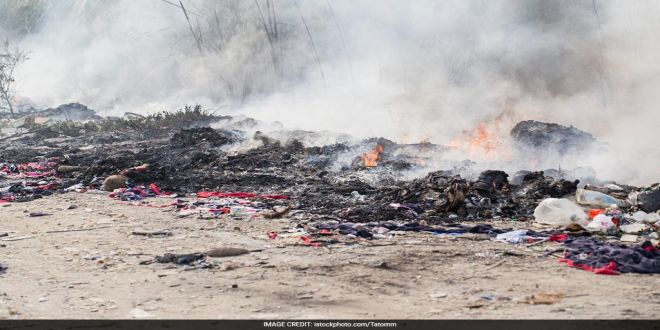Beijing: Long-term exposure to Particulate Matter 2.5 (PM 2.5), a major particle matter pollutant increases the risk of diabetes, finds a study. Researchers from the Fuwai Hospital under the Chinese Academy of Medical Sciences as well as Emory University in the United States evaluated the association between long-term exposure to PM2.5 and diabetes incidence based on data collected from more than 88,000 Chinese adults, the Xinhua (New China News Agency) reported.
The team used satellite-based PM2.5 concentrations to assess PM2.5 exposure for each subject during the period 2004-2015. For an increase of 10 micrograms per cubic meter of long-term PM2.5 concentration, the risk of diabetes incidence increased by 15.7 per cent, according to the study published in the journal Environment International.
Also Read: Air Pollution: Foul Air May Affect Foetal Heart Development
The study would benefit policy-making and intervention design in diabetes prevention, the researchers said. said Lu Xiangfeng, from the Fuwai Hospital,
Our future work will focus on introducing spatiotemporal data of PM2.5 at higher resolution and indoor source of exposures to further detect the health effects of long-term exposure to PM2.5.
According to the World Health Organization (WHO), air pollution can lead to lung cancer, respiratory infection, stroke, and even heart disease.
Air pollution and diabetes are responsible for millions of death globally. Data from the WHO show that in 2014, 8.5 per cent of adults developed diabetes and that in 2015, this health condition resulted in 1.6 million deaths.
As per the WHO standard, the annual permissible concentration of the toxic pollutant PM 2.5 is 10 µg/m³, and the 24- hours permissible concentration is 25 µg/m³.
Also Read: Encouraging To See India’s Innovation To Tackle Pollution, Says UN Environment Acting Chief
NDTV – Dettol Banega Swachh India campaign lends support to the Government of India’s Swachh Bharat Mission (SBM). Helmed by Campaign Ambassador Amitabh Bachchan, the campaign aims to spread awareness about hygiene and sanitation, the importance of building toilets and making India open defecation free (ODF) by October 2019, a target set by Prime Minister Narendra Modi, when he launched Swachh Bharat Abhiyan in 2014. Over the years, the campaign has widened its scope to cover issues like air pollution, waste management, plastic ban, manual scavenging and menstrual hygiene. The campaign has also focused extensively on marine pollution, clean Ganga Project and rejuvenation of Yamuna, two of India’s major river bodies.




























